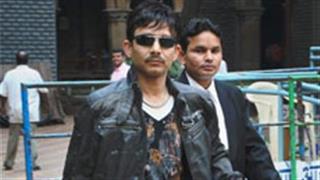Shyam Benegal, the noted filmmaker who burst into the film world 26 years ago with a clutch of realistic films about village India, says he finds it easier to shoot in a custom-built village these days than endure the
inconvenience of a real one.
The acclaimed director of "Ankur", "Nishant" and "Manthan" - a classic trio of grim films based in rural India - says at his age he finds it more comfortable to recreate an entire village, provided there's enough land and a
suitable budget.
"A real village may seem less expensive but actually it isn't because you have spend a lot more time and you have to organise it in such a way that you keep visitors out - you have to keep people in the village out of
the proceedings themselves, " the award-winning director told in London.
"This kind of thing causes a great deal inconvenience to people who actually live there. I've discovered that it's much easier - if you can afford it - to build a whole little village, " said Benegal, who was here for the
screening of his latest film at the London Film Festival.
Benegal, probably India's best-known living filmmaker, has returned to the theme of rural India with his last two films - both comedies - 'Welcome to Sajjanpur' and the latest one, 'Well Done Abba, ' which played to
packed audiences in London.
But, the 74-year-old filmmaker said, rather than struggle through shooting in a real far-flung village, he now prefers to build an entire village at the sprawling Ramoji Film City on the outskirts of Hyderabad.
"There's 1, 000 acres of absolute countryside where you can build whatever you want. So I built this little village. It's very convenient - you can have all your actors and your unit at one place, and it's easier to access
people.
"When I started making films, I used to feel if you really want to make something worthwhile, you have to suffer through it. A lot of young people believe that about filmmaking but I've been in the business so long that I
think a little comfort is a good thing.
"It doesn't actually mean that I recommend this as the way, but this was the way I found to be convenient, comfortable, and less stressful."
"Well Done Abba", Benegal's 24th feature film and starring Boman Irani, takes a comic look at corruption in rural development, its plot themed around a village well that has "disappeared".
Benegal said he returned to village India partly out of concern that most Hindi-language films were metro-centric and partly because he wanted to find out how village India was transforming in the 21st century.
He said it was wrong to assume that rural India "is in a state of misery, that it's a kind of area of darkness. The truth is, it is not. Comedy is a way of dealing with it."
Although the feudalism portrayed in his early films still existed, there was also "genuine change taking place, " Benegal said.
"And there are so many layers, that's what's interesting. It's rich with subjects and different kinds of narratives, but the major film industry doesn't seem to be interested in all this. It worries me, but I suppose that's the
way the world is."
Easier to build new village than shoot in a real one: Shyam Benegal
Saturday, October 24, 2009 11:49 IST



















